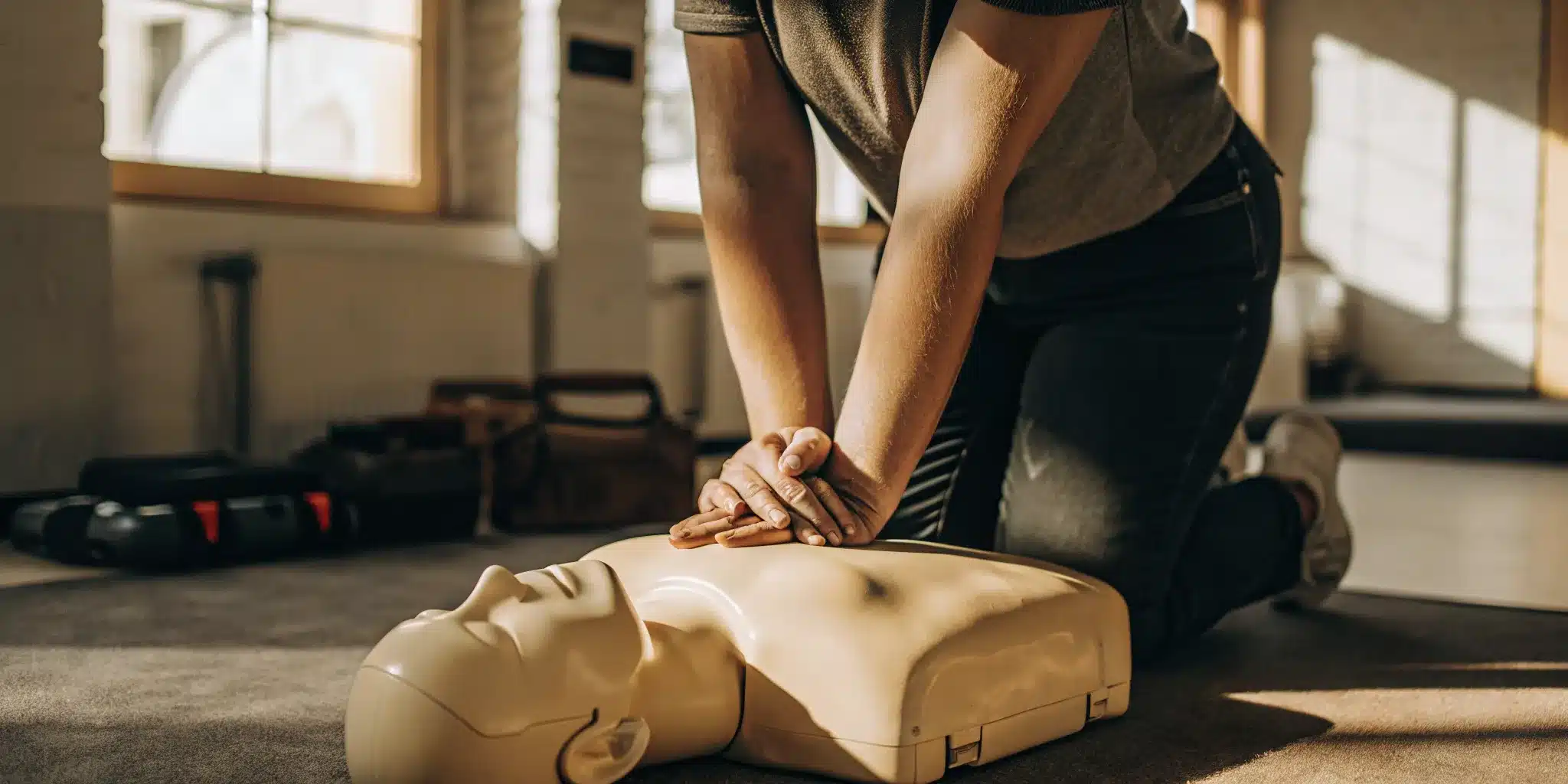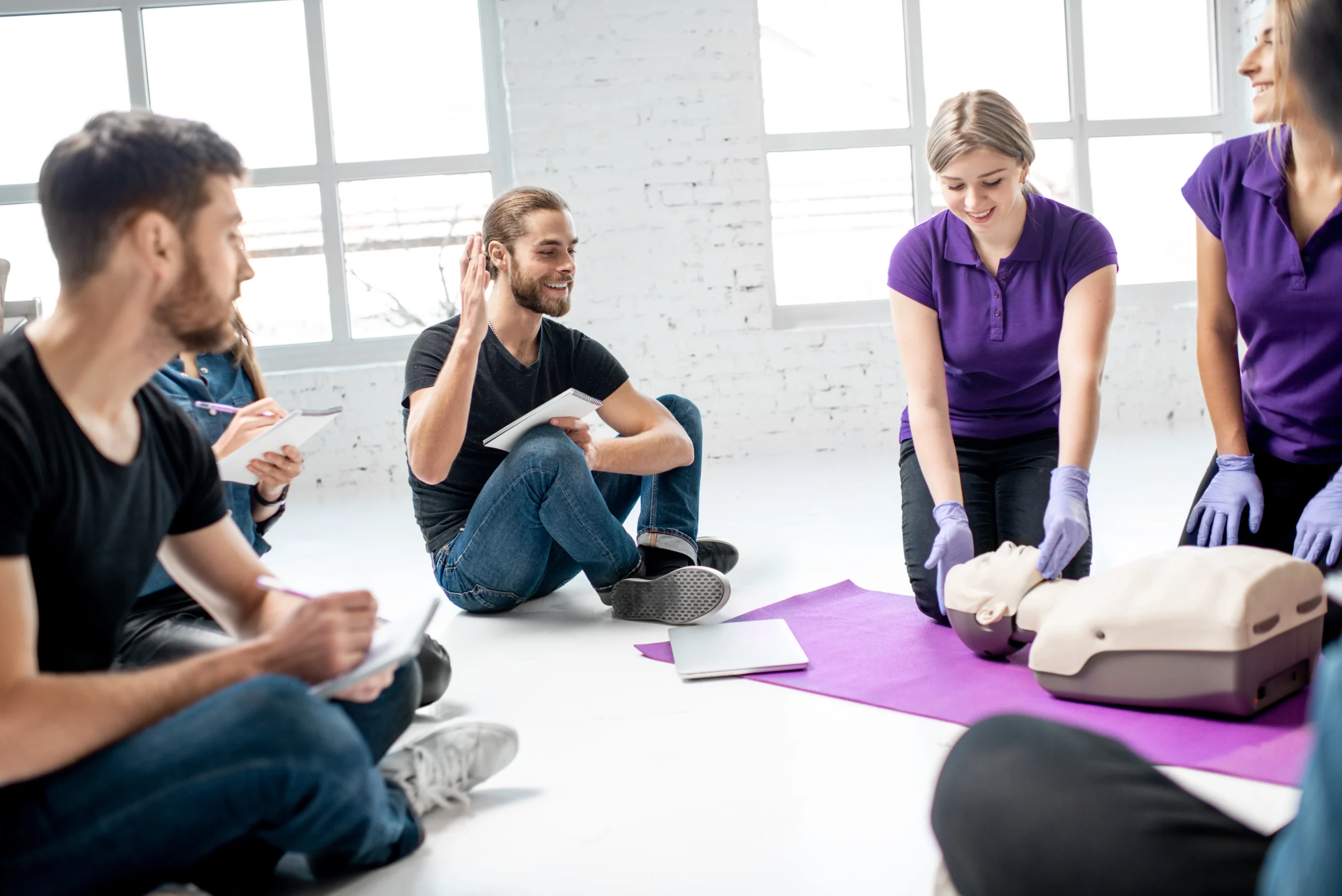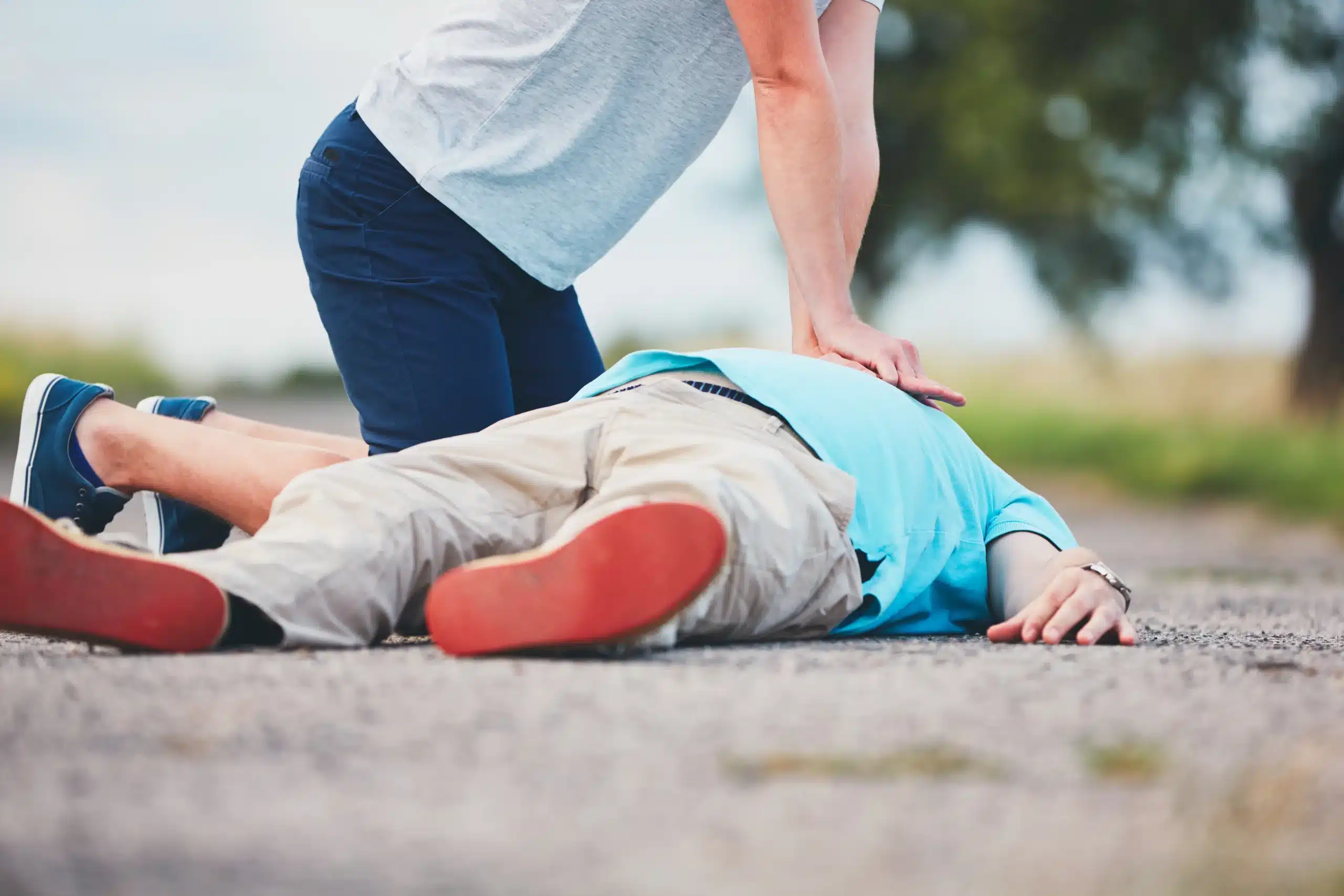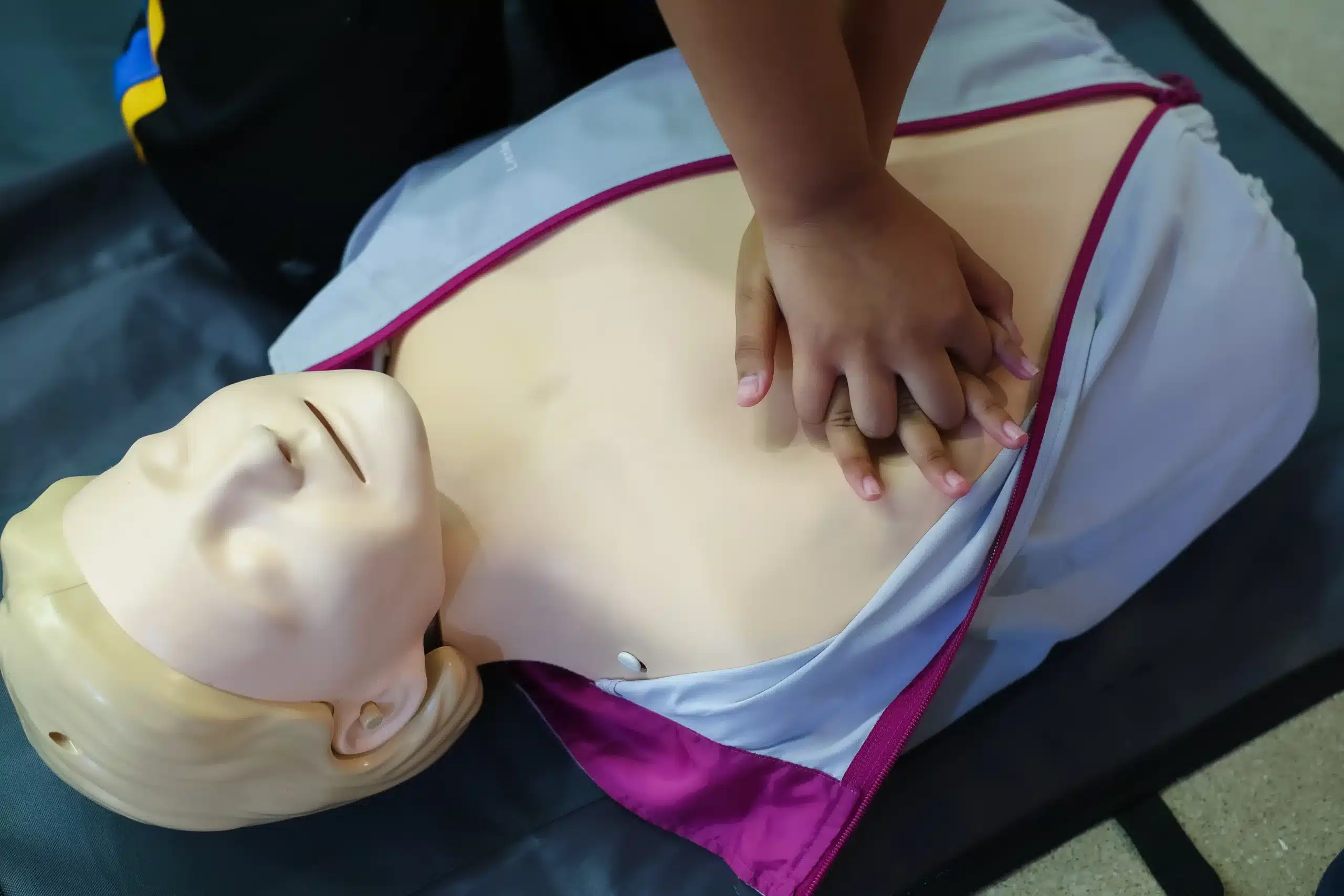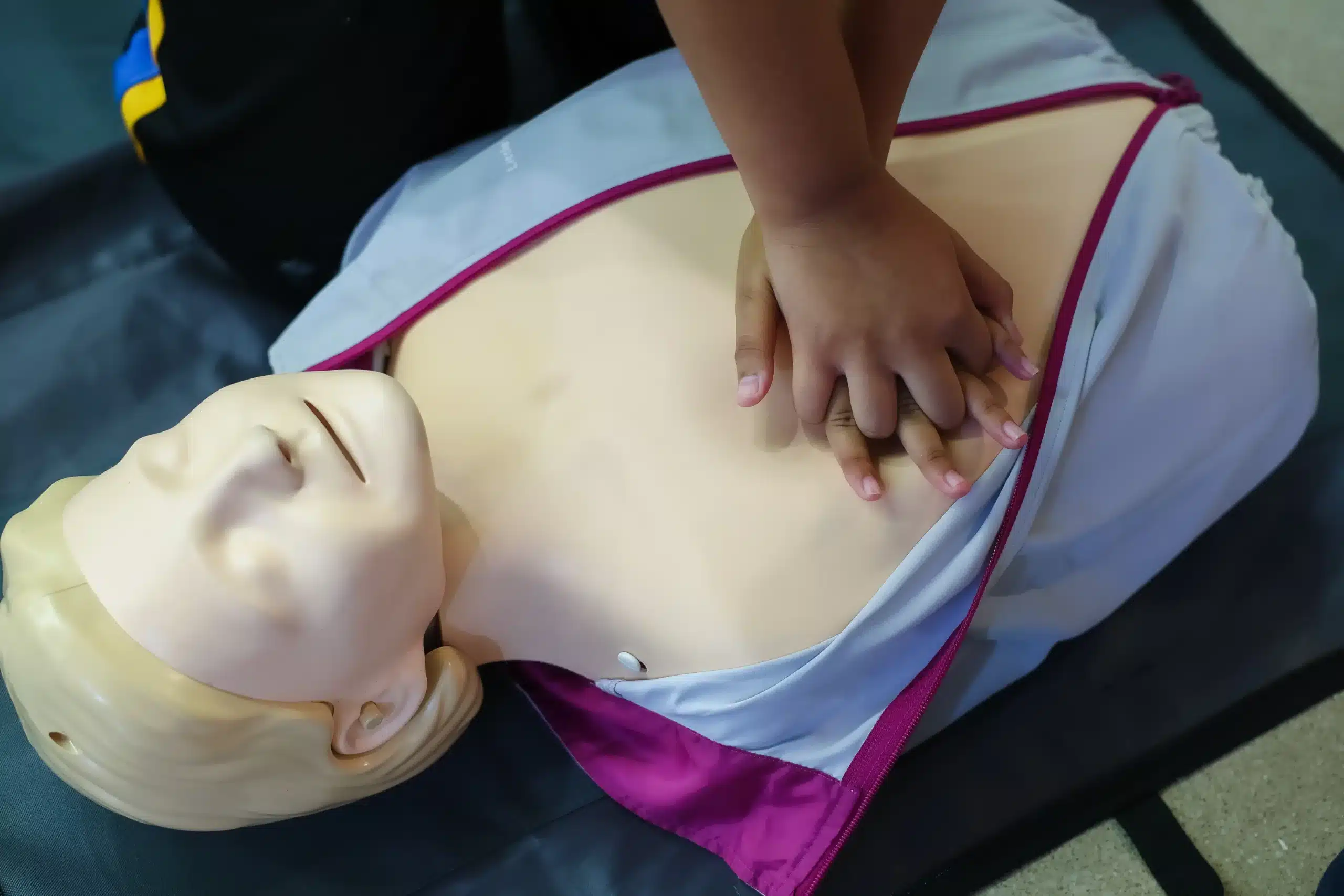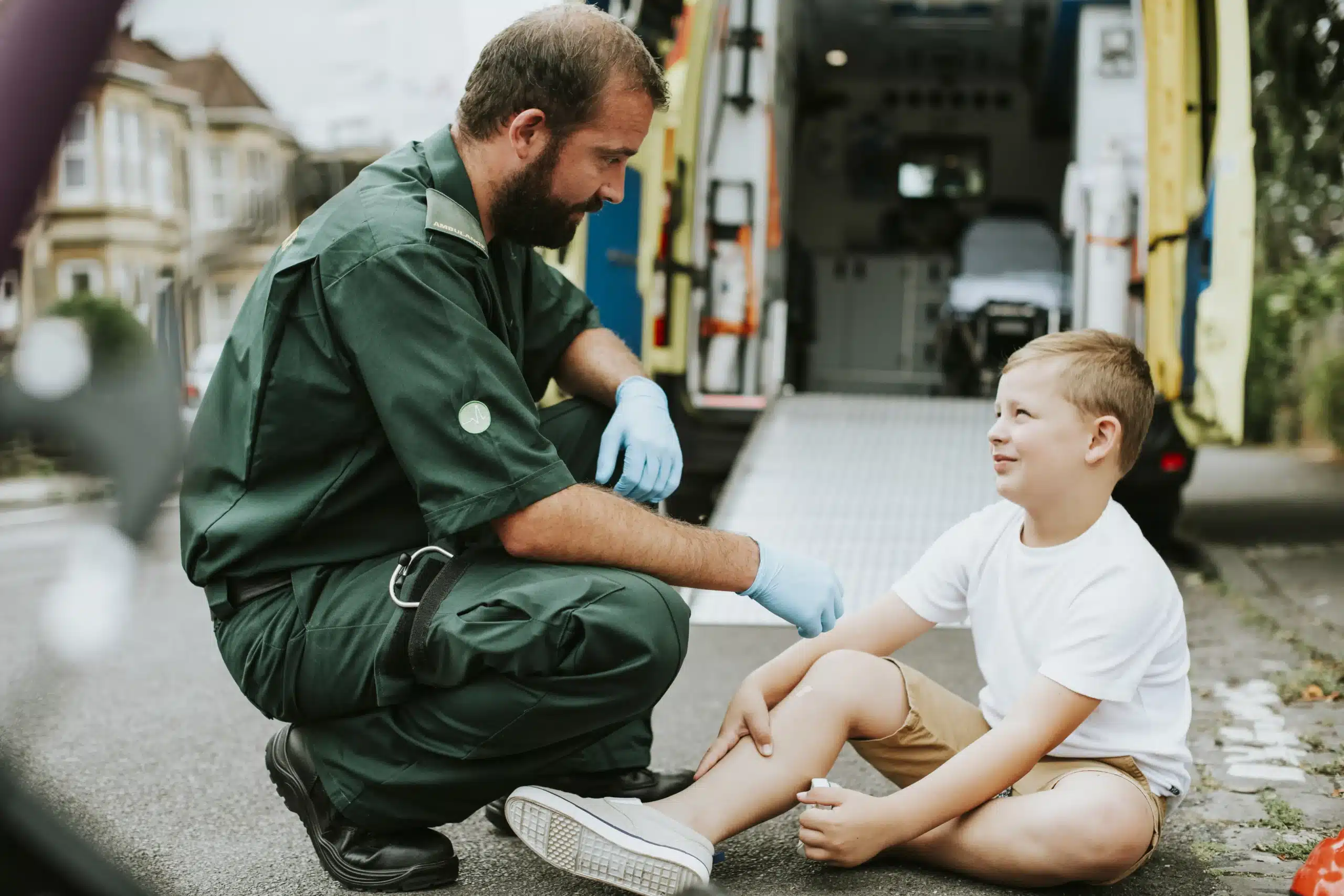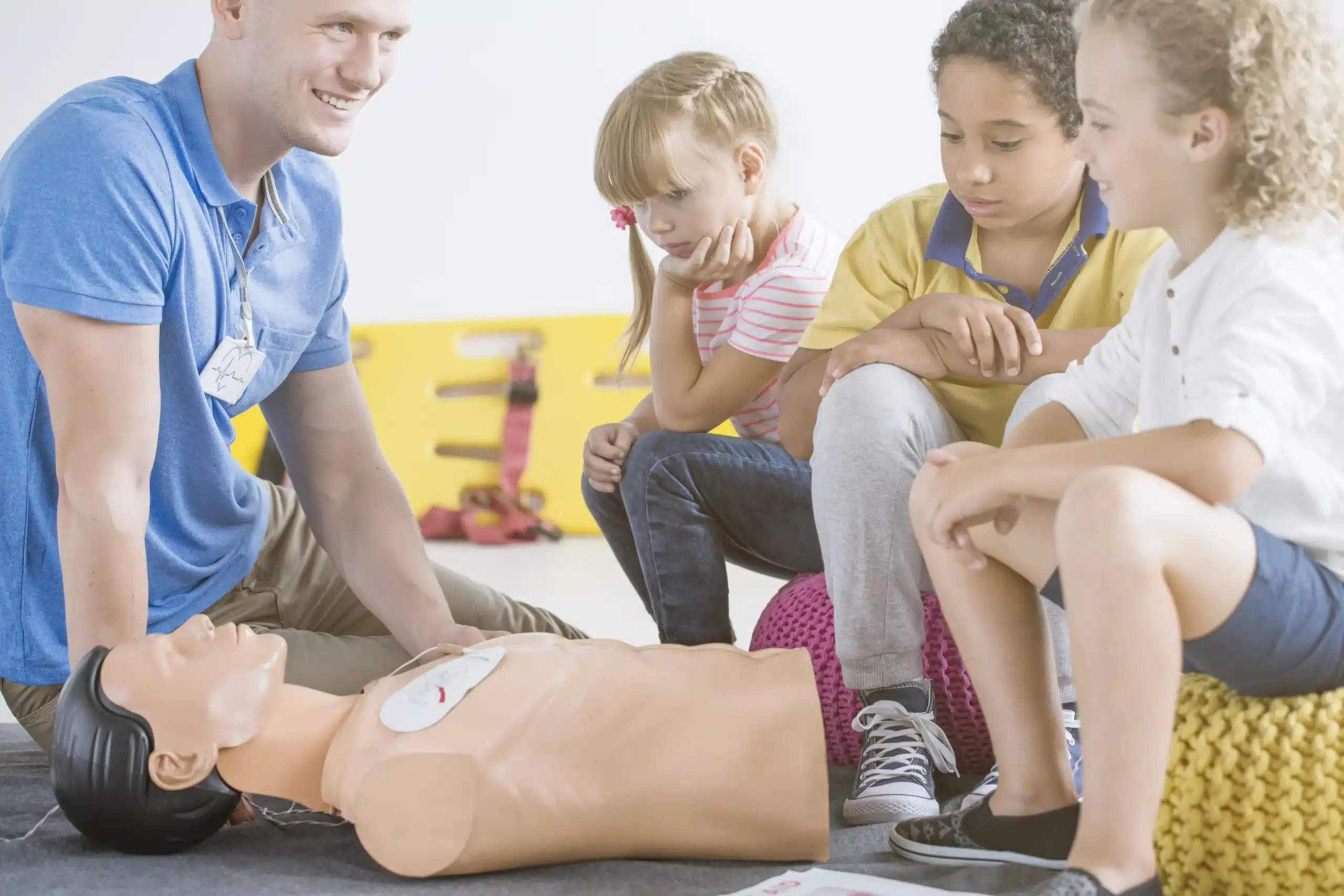Emergencies can happen anytime, and knowing how to respond effectively can make all the difference. This comprehensive guide explores CPR certification Petaluma, offering valuable insights into the various courses available in the area. We’ll discuss the importance of CPR training, the different levels of certification (BLS, ACLS, PALS), and what you can expect to learn in each course. Whether you’re a healthcare provider seeking to maintain your credentials or an individual wanting to learn a life-saving skill, this guide will help you find the right CPR certification Petaluma program for your needs. We’ll also cover where to find classes, cost considerations, and tips for choosing a reputable training provider.
Key Takeaways
- Find the right CPR certification level for your needs: Petaluma offers courses ranging from basic CPR and First Aid to advanced certifications like ACLS and PALS for healthcare providers. Choose the one that aligns with your personal or professional goals.
- Hands-on practice builds CPR confidence: Look for courses with ample mannequin practice time. This practical experience is essential for developing the muscle memory and confidence to perform CPR effectively in a real-world emergency.
- CPR certification benefits you and your community: Learning CPR equips you with life-saving skills, potentially enhancing your career prospects and creating a safer environment for everyone around you. Explore the resources and providers in Petaluma to get started.
What is CPR Certification in Petaluma?
CPR certification in Petaluma gives you the skills to perform CPR effectively. It’s valuable for both healthcare professionals and anyone who wants to handle emergencies with confidence. Courses cover essential techniques like chest compressions and rescue breaths, which are crucial for restoring blood circulation and oxygen flow during cardiac arrest. HealthQuest, an American Heart Association (AHA) authorized training center within the Petaluma Health Care District, has provided CPR, First Aid, and AED training in the North Bay for nearly 50 years, highlighting the importance of these skills in our community.
Safety Training Seminars offers various CPR classes in Petaluma, including BLS, ACLS, and PALS certifications, so you can find training that fits your needs. While you don’t need certification to perform CPR, formal training significantly improves your ability to respond effectively in a crisis. Knowing the techniques and having the confidence to use them can make all the difference. For more information about the importance of training, you can read about common misconceptions surrounding CPR certification.
CPR Certification Courses in Petaluma
Finding the right CPR certification course in Petaluma depends on your specific needs and career goals. Here’s a breakdown of the different levels of CPR certification available:
Basic Life Support (BLS)
BLS certification is the foundation for anyone interested in learning CPR. It covers core life-saving skills like chest compressions, rescue breaths, and how to use an automated external defibrillator (AED). Safety Training Seminars offers American Heart Association BLS courses in Petaluma, designed for healthcare providers and other professionals who may need to perform CPR. These courses emphasize hands-on practice to build confidence in real-world emergencies.
Advanced Cardiac Life Support (ACLS)
For healthcare professionals, ACLS certification goes beyond the basics of CPR. ACLS training at Safety Training Seminars focuses on the advanced management of cardiac arrest and other cardiovascular emergencies. You’ll learn advanced skills like airway management, rhythm recognition, and pharmacology. This certification is essential for doctors, nurses, paramedics, and other professionals involved in advanced cardiac care.
Pediatric Advanced Life Support (PALS)
If you work with children, PALS certification is essential. PALS courses at Safety Training Seminars cover the specialized skills needed to respond to pediatric emergencies, including respiratory and cardiac issues. This training provides healthcare providers with the knowledge and practice they need to care for infants and children in critical situations.
Adult, Child, and Infant CPR
The Petaluma Health Care District, through its HealthQuest program, offers comprehensive CPR training covering adults, children, and infants. These courses include AED and First Aid training, providing a well-rounded approach to emergency preparedness. Their focus on hands-on learning, with one mannequin per participant, helps build practical skills and confidence.
What You’ll Learn in CPR Certification
CPR certification equips you with the skills to respond effectively during medical emergencies. These courses cover a range of life-saving techniques, from basic to advanced procedures. Let’s explore what you can expect to learn:
Chest Compressions and Rescue Breathing
This core component of CPR training teaches you how to perform chest compressions and provide rescue breaths. You’ll learn the correct hand placement, compression depth, and rate for different age groups (adults, children, and infants). Proper technique ensures effective blood circulation and oxygen delivery during cardiac arrest. Petaluma CPR classes offer comprehensive training on these essential skills.
AED Usage
Automated External Defibrillators (AEDs) are life-saving devices used to restore a normal heart rhythm during sudden cardiac arrest. CPR certification includes training on how to safely and effectively operate an AED. You’ll learn to assess the situation, apply the AED pads, and follow the device’s prompts. This training can make a significant difference in survival rates.
Choking Response
CPR training also addresses how to respond to choking emergencies. You’ll learn techniques to dislodge foreign objects obstructing the airway in both conscious and unconscious individuals. This includes the Heimlich maneuver for adults and abdominal thrusts for children and infants. Knowing how to respond quickly and effectively can prevent a life-threatening situation.
Two-Person Rescue Techniques
In some situations, two rescuers may be available to provide CPR. Your training will cover how to coordinate efforts effectively during two-person CPR, ensuring seamless transitions and maximizing the chances of successful resuscitation. This includes synchronized compressions and rescue breaths, as well as clear communication between rescuers. Practicing these techniques can improve the effectiveness of CPR in team settings.
Advanced Airway Management
More advanced CPR courses may cover advanced airway management techniques. This can include the use of bag-valve masks (BVMs) and other airway adjuncts to provide more effective ventilation. These skills are particularly relevant for healthcare professionals and those seeking advanced certification. HealthQuest offers a range of CPR courses, including those covering advanced airway management.
Where to Get CPR Certified in Petaluma
Finding the right CPR certification course in Petaluma depends on your needs and preferences. Here are a few reputable options:
Safety Training Seminars
Safety Training Seminars offers a range of American Heart Association (AHA) certifications, including BLS, ACLS, PALS, and First Aid. They focus on providing comprehensive training at their Petaluma location, serving residents of Rohnert Park and Novato as well. Learn more about their BLS certification, ACLS training, or PALS courses. They also offer group discounts and a low price guarantee.
Petaluma Health Care District’s HealthQuest
HealthQuest CPR, authorized by the American Heart Association, has provided CPR, First Aid, and AED training in the North Bay for almost 50 years. They are a well-established option for those seeking certification through a trusted local provider. Explore their CPR training options.
American Red Cross
The American Red Cross offers various CPR/AED training and certification classes throughout California. With options for in-person, online, or blended learning (a combination of online and in-person instruction), the Red Cross provides flexibility. Find a Red Cross CPR class.
In-Home CPR
For a more personalized experience, In-Home CPR brings certified instructors directly to your home or office in Petaluma. They offer First Aid and CPR training, including BLS and ACLS certification, making it a convenient option for busy professionals or groups.
CPR Certification Costs & Discounts
Standard Pricing
When budgeting for CPR certification in Petaluma, it’s helpful to know the typical costs. Many local providers, like those offering health and wellness classes through the Petaluma Healthcare District, charge around $25 per person for standard CPR classes. Pre-registration is often required. For healthcare providers needing the American Heart Association Basic Life Support (BLS) certification, the cost is typically around $45 for in-person training. Resources like Thumbtack can help you compare pricing from various CPR training providers.
Group Discounts
Coordinating training for a group? Discounts can significantly lower the overall cost. Safety Training Seminars specializes in on-site training, bringing the class directly to your workplace. They offer discounts for group bookings, a convenient and cost-effective way to ensure your team is prepared.
Low Price Guarantee
Safety Training Seminars offers a low price guarantee on CPR courses, including BLS, ACLS, PALS, and general CPR and First-aid training. They’re committed to making these essential lifesaving skills accessible. Their customer service team is available daily from 8 AM to 10 PM to answer any questions and help with registration.
Getting Your CPR Certification
Getting CPR certified is straightforward. Here’s what you can expect when pursuing your certification in Petaluma.
Class Duration and Format
CPR/AED courses typically run between two and four hours, depending on the format and material. This flexibility accommodates various schedules and learning styles. Some courses offer blended learning, combining online coursework with in-person skills sessions. Others are entirely in person. Choose the format that best suits your needs. Safety Training Seminars, for example, offers a variety of course formats to fit your schedule.
Hands-on Practice
High-quality CPR training emphasizes hands-on practice. Look for classes that provide one mannequin per student, allowing ample practice time to develop muscle memory and confidence. HealthQuest, affiliated with the Petaluma Health Care District, is known for its small class sizes and hands-on learning.
Certification Validity and Renewal
Most CPR certifications are valid for two years. You’ll receive your certification after successfully completing the course, including the in-person skills session. Maintaining your certification through renewal courses is essential for staying current with the latest guidelines and being prepared for emergencies. The American Red Cross offers renewal courses. Check with your certifying organization for specific renewal requirements.
Find the Right CPR Course for You
Choosing the right CPR course involves considering several factors to ensure you receive high-quality training that meets your specific needs. Here’s a breakdown of key aspects to keep in mind:
Accreditation and Instructor Qualifications
Look for a training provider accredited by a nationally recognized organization like the American Heart Association (AHA). Safety Training Seminars offers AHA-certified courses, ensuring the training aligns with the established standards accepted by employers and healthcare institutions. Instructor qualifications are equally important. Experienced, certified instructors can make a significant difference in your learning. Check if the instructors have extensive experience and maintain current certifications. Our instructors bring years of real-world experience to the classroom.
Class Size and Equipment
A smaller class size often translates to more personalized attention from the instructor and more opportunities for hands-on practice. Inquire about the student-to-mannequin ratio. Ideally, each student should have their own mannequin for practice. Safety Training Seminars offers flexible training options, including on-site courses, allowing for tailored class sizes and equipment based on your group’s needs. This personalized approach can significantly improve your comfort level and skill development. For those seeking a more affordable option, consider our group discounts.
Location Convenience
Consider the location and scheduling options when selecting a course. Do you prefer a course near your home or workplace? Safety Training Seminars offers classes in over 60 cities and can even bring the training to your business, minimizing travel time and disruption to your schedule. This flexibility is especially valuable for busy professionals and groups. Think about what works best for your schedule and choose a provider that offers convenient options. We proudly serve Petaluma, Rohnert Park, and Novato.
Register for Your CPR Class
Ready to get CPR certified? Safety Training Seminars offers a few ways to register, making it easy to find an option that works for you.
Online Registration
If online learning suits you best, you can register and complete the American Heart Association online portion at your own pace. You’ll need a computer or tablet for the online course—phones are not supported. After finishing the online portion, you’ll schedule a short in-person skills session to demonstrate your technique and receive your official certification. The Course Preparation page has more information to help you get ready.
In-Person Sign-up
Prefer learning in person? We offer classes at our Petaluma training center. We also offer on-site training, bringing the CPR class to your workplace. This is a convenient option for businesses looking to certify multiple employees at once. Safety Training Seminars can come to your location any day of the week for BLS, CPR, and First-aid training.
Required Materials and Preparation
On the day of your in-person skills session (whether after online coursework or for a fully in-person class), bring a government-issued photo ID. You’ll receive a complimentary keychain CPR training mask when you arrive, which is yours to keep. After successfully completing the course, you’ll receive an official American Heart Association certification card, valid for two years.
Why Get CPR Certified?
Knowing CPR can make a real difference in critical situations. It empowers you to act quickly and confidently, potentially saving a life. Whether for personal growth, career advancement, or community impact, CPR certification offers numerous benefits.
Personal Preparedness
Emergencies can happen anytime, anywhere. Being equipped with CPR training means you’re prepared to respond effectively. CPR and AED use can dramatically increase survival rates during sudden cardiac arrest (SCA). In fact, these skills can raise survival rates from less than 5% to nearly 70%, according to HealthQuest CPR, a program of the Healthy Petaluma District + Foundation. Learning CPR provides the skills and confidence to act quickly when every second counts, potentially saving the life of a loved one, a stranger, or even yourself.
Career Advancement
CPR certification is a valuable asset in many professions. It’s a sought-after skill, demonstrating your commitment to safety and preparedness. Many employers value CPR certification, as pointed out by this article on common misconceptions about CPR training. While some roles may require a more specialized certification like BLS, CPR certification is often accepted and can create opportunities, especially in fields like healthcare, education, childcare, and fitness. Even if not strictly required, having CPR certification on your resume can give you an edge.
Community Safety Impact
Becoming CPR certified contributes to a safer community. By learning CPR, you become part of a network of trained responders ready to assist in emergencies. This increased preparedness leads to better outcomes for those in need. Petaluma CPR Classes emphasizes the importance of hands-on training, ensuring participants gain practical experience and the confidence to respond effectively. This commitment to quality training strengthens the community’s ability to handle emergencies and creates a safer environment for everyone.
CPR Certification: Challenges & Solutions
Getting CPR certified is a rewarding experience, but it’s not without its occasional hurdles. Let’s take a look at some common challenges and how to overcome them.
Scheduling Conflicts
Life gets busy, and sometimes things come up that interfere with even the best-laid plans. If you need to reschedule your CPR class, contact Safety Training Seminars as soon as possible. You can reschedule for a small fee, ensuring you don’t lose your spot and can find a time that better fits your schedule.
Online Component Issues
Some CPR courses include an online portion. If your course has an online component, be sure to use a computer or tablet to access the materials. A phone won’t work, so plan accordingly. Having the right equipment ready beforehand will make the online learning process much smoother. If you experience any technical difficulties, reach out to your course provider for assistance.
Overcoming CPR Performance Anxiety
It’s completely normal to feel a little anxious about performing CPR, especially in a class setting. Remember, the instructors understand this and create a supportive learning environment. Programs like HealthQuest CPR focus on building student confidence. Hands-on practice and guidance from experienced instructors will help you feel prepared to use your skills effectively in a real-life emergency. Focus on learning a valuable skill that could save someone’s life, and don’t hesitate to ask questions.
Related Articles
- BLS, ACLS, PALS, CPR & First-aid Classes in Petaluma, CA
- BLS CPR Classes in Petaluma, CA – Petaluma CPR Classes
- Northern CA CPR Directory – Petaluma CPR Classes
- PALS Classes in Petaluma, CA – Petaluma CPR Classes
- Why CPR is Important in Healthcare – Petaluma CPR Classes
Frequently Asked Questions
What’s the difference between BLS and CPR?
CPR (Cardiopulmonary Resuscitation) is the actual hands-on technique used during emergencies. BLS (Basic Life Support) is a broader term that includes CPR but also incorporates other essential skills like using an AED and recognizing the signs of a heart attack or stroke. Think of CPR as one piece of the larger BLS puzzle. BLS certification is often preferred for healthcare providers and those in professional rescuer roles.
How long does it take to get CPR certified?
CPR certification courses typically take a few hours to complete, depending on the level and format. Some providers offer blended learning, combining online coursework with a shorter in-person skills session. Others offer fully in-person classes. Either way, you can become certified relatively quickly.
How much does CPR certification cost in Petaluma?
The cost of CPR certification varies depending on the provider and the type of course. Basic CPR classes can be quite affordable, while more advanced certifications like BLS, ACLS, and PALS typically cost more. Look for providers that offer group discounts or a low-price guarantee to help manage the cost.
How often do I need to renew my CPR certification?
Most CPR certifications are valid for two years. It’s important to renew your certification before it expires to stay up-to-date on the latest guidelines and maintain your skills. Check with your certifying organization for specific renewal requirements.
What if I have to reschedule my CPR class?
Life happens! If you need to reschedule your CPR class, contact the training provider as soon as possible. Many providers offer flexible rescheduling options for a small fee, so you can find a time that works better for you.
This article was written for free by MEGA SEO.
